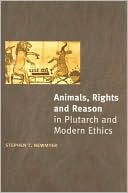Category Books
- Fiction Books & Literature
- Graphic Novels
- Horror
- Mystery & Crime
- Poetry
- Romance Books
- Science Fiction & Fantasy
- Thrillers
- Westerns
- Ages 0-2
- Ages 3-5
- Ages 6-8
- Ages 9-12
- Teens
- Children's Books
- African Americans
- Antiques & Collectibles
- Art, Architecture & Photography
- Bibles & Bible Studies
- Biography
- Business Books
- Christianity
- Computer Books & Technology Books
- Cookbooks, Food & Wine
- Crafts & Hobbies Books
- Education & Teaching
- Engineering
- Entertainment
- Foreign Languages
- Game Books
- Gay & Lesbian
- Health Books, Diet & Fitness Books
- History
- Home & Garden
- Humor Books
- Judaism & Judaica
- Law
- Medical Books
- New Age & Spirituality
- Nonfiction
- Parenting & Family
- Pets
- Philosophy
- Political Books & Current Events Books
- Psychology & Psychotherapy
- Reference
- Religion Books
- Science & Nature
- Self Improvement
- Sex & Relationships
- Social Sciences
- Sports & Adventure
- Study Guides & Test Prep
- Travel
- True Crime
- Weddings
- Women's Studies
Animals, Rights and Reason in Plutarch and Modern Ethics »

Authors: Stephen Newmyer, S. Newmyer
ISBN-13: 9780415240475, ISBN-10: 0415240476
Format: Paperback
Publisher: Taylor & Francis, Inc.
Date Published: March 2006
Edition: (Non-applicable)
Author Biography: Stephen Newmyer
Book Synopsis
Plutarch is virtually unique in surviving classical authors in arguing that animals are rational and sentient, and in concluding that human beings must take notice of their interests. Stephen Newmyer explores Plutarch's three animal-related treatises, as well as passages from his other ethical treatises, which argue that non-human animals are rational and therefore deserve to fall within the sphere of human moral concern. Newmyer shows that some of the arguments Plutarch raises strikingly foreshadow those found in the works of such prominent animal rights philosophers as Peter Singer and Tom Regan in maintaining that non-human animals are the sorts of creatures that have intellectual qualities that cause them to be proper objects of man's concern, and have interests and desires that entitle them to respect from their human counterparts. This volume is groundbreaking in viewing Plutarch's views not only in the context of ancient philosophical and ethical thought, but in its place, generally overlooked, in the history of speculation on human-animal relations, and in pointing out how remarkably Plutarch differs from such predominantly anti-animal thinkers as the Stoics.
Table of Contents
INTRODUCTION:
The Ancients and the Moderns
THE NATURE OF THE BEAST:
The Search for Animal Rationality
JUST BEASTS:
Animal Morality and Human Justice
FEELING BEASTLY:
Pain, Pleasure, and the Animal Estate
BEAUTY IN THE BEAST:
Cooperation, Altruism, and Philanthropy among Animals
ANIMAL APPETITES:
Vegetarianism and Human Morality
VII. CONCLUSION
Subjects
 Ethics & Moral Philosophy
Ethics & Moral PhilosophyFiction Books & Literature
 Literary Criticism
Literary Criticism  Ancient & Medieval Literature
Ancient & Medieval LiteratureNonfiction
 Philosophy
Philosophy  General & Miscellaneous Philosophy
General & Miscellaneous PhilosophyNonfiction
 Philosophy
Philosophy  Major Branches of Philosophical Study
Major Branches of Philosophical StudyNonfiction
 Psychology
Psychology  Psychology - Theory, History & Research
Psychology - Theory, History & ResearchPhilosophy
 General & Miscellaneous Philosophy
General & Miscellaneous Philosophy  General & Miscellaneous
General & MiscellaneousPhilosophy
 Major Branches of Philosophical Study
Major Branches of Philosophical Study  Ethics & Moral Philosophy
Ethics & Moral PhilosophyPsychology & Psychotherapy
 Psychology - Theory, History & Research
Psychology - Theory, History & Research  Animal Behavior & Psychology
Animal Behavior & PsychologyScience & Nature
 Nature
Nature  Animal Rights
Animal RightsScience & Nature
 Nature
Nature  Animals - Habitats & Behaviors - General & Miscellaneous
Animals - Habitats & Behaviors - General & MiscellaneousScience & Nature
 All Science & Nature
All Science & Nature  Nature
NatureMedical Books
 Psychology & Psychotherapy
Psychology & Psychotherapy  Psychology - Theory, History & Research
Psychology - Theory, History & ResearchNonfiction
 Science & Nature
Science & Nature  Nature
NatureNonfiction
 Science & Nature
Science & Nature  All Science & Nature
All Science & Nature
